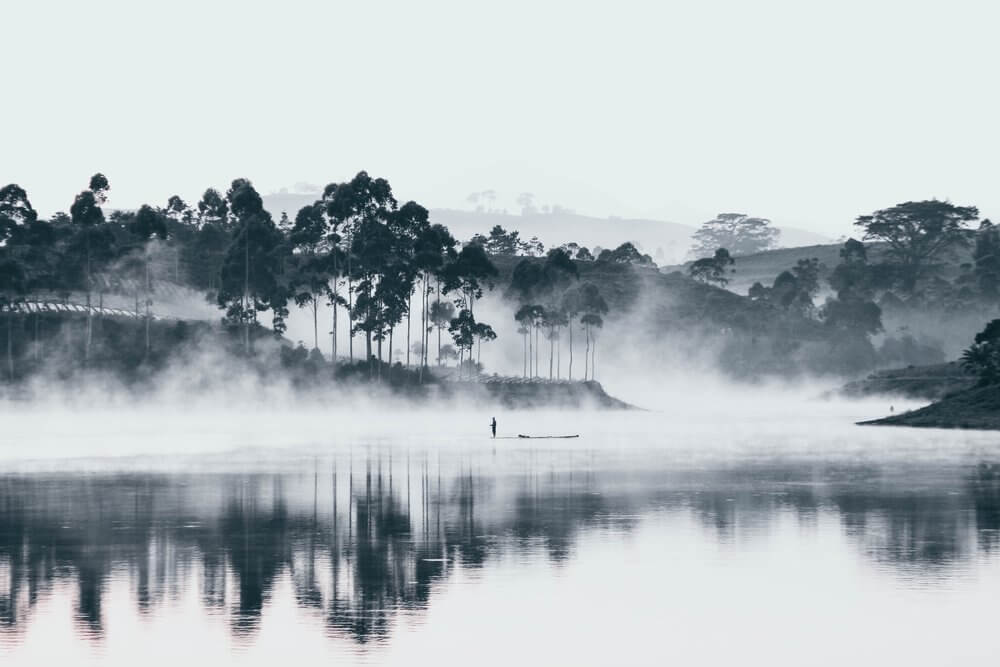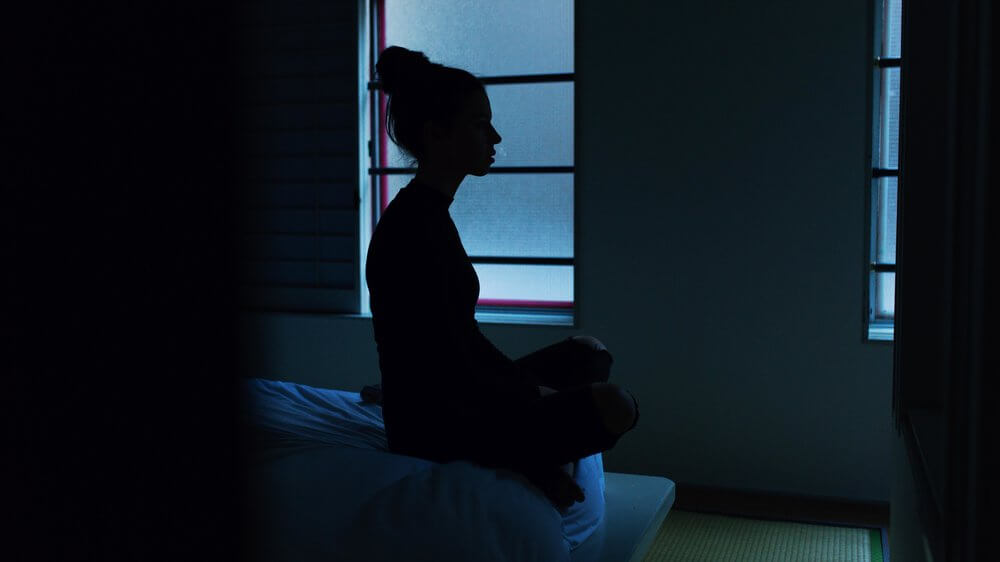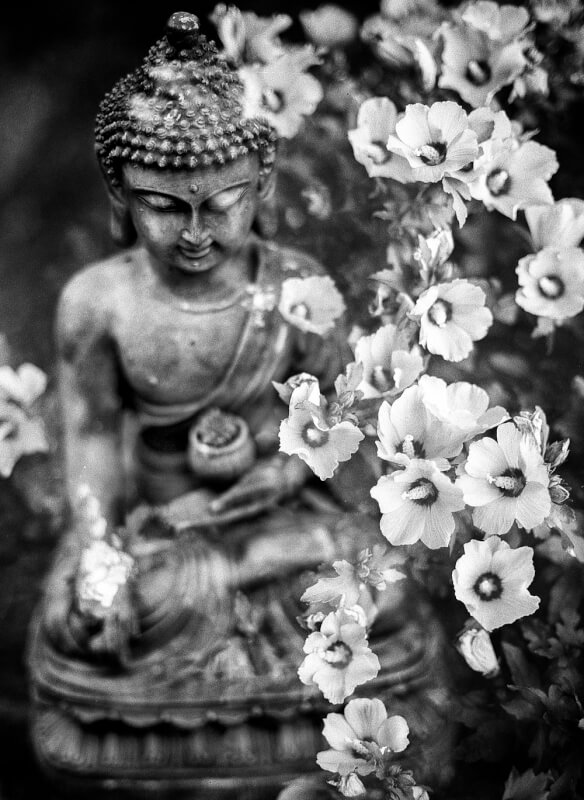The Water Element
The winter season welcomes in the water element, and as I have written about before, it is the element and season that houses our great potential. The seed of our ambitions. The deep well of our creativity. Cultivation this time of year is potent. As is self-reflection. Just as the smooth surface of a lake shows us the reflection of a winter sky, a calm surface allows us to look within.

We can sit with the sense of our own accomplishments, those behind us and those still to come. Because the water element represents death and also birth, the murky mystery from which we all emerged and to which we are all slowly returning, the season of the water element offers a chance to consider our life’s path.
Winter, when the natural world around us has let go its blooms and leaves and settled its potential deep inside the earth, tells us to slow down. It tells us to stay home, to move less, to sleep more, to fatten up a little.
Our world is very stimulating, especially for city-dwellers. Artificial lights allows us to party or work all night, artificial stimulants allow us to think we have the energy to do so. They let us push past the gentle urging of the body and limitations of the natural world to “burn the candle at both ends.” But it catches up with us sooner or later. We are of the animal world, after all. We need sleep to reset our neurotransmitters and cardiovascular system, regulate appetite, build blood cells, repair tissues and improve memory. And all of the stimulants we surround ourselves with make sleep harder.

“Sleep hygiene” is a term that gets thrown around a lot and I admit that while I usually say it to patients with air quotes, I end up referring to it a lot. We are asking a lot of our brains to be in full throttle all day and then to suddenly shut off when we turn out the lights. Most brains need a little wind down time before they can turn inward and allow sleep to come. I’ve always been envious of the people who lie down and are immediately breathing contentedly in sleep as I toss and turn. My brain and I usually have to battle it out for a while before the stillness comes. But there are things that bring it on faster.

Good “Sleep Hygiene”
Anyone who struggles with sleep or chronically doesn’t get enough of it knows how essential it is for living a good life. A lot of patients who come to see me for acupuncture are hoping for more energy. We do an initial intake interview and I ask them questions about all their systems. When it comes to answering questions about energy, they say it is chronically, inexplicably low. When I ask about sleep, they will often tell me they get four to six hours of sleep a night.
There are a lot of reasons people have low energy- thyroid disregulation, lack of nutrients or nutrient absorption, auto-immune disease, poor diet, chronic stress, depression- all things acupuncture can treat very successfully, but at this point in the conversation I usually laugh and say, “Bingo! That’s probably why you have low energy! You need about three more hours of sleep a night.” A lack of sleep can bring on all kinds of symptoms and exacerbate chronic conditions. Maybe we think we’re beyond the needs of our animal bodies, but we aren’t.
Sleep is cyclical, like everything else. When there are more dark hours than light, the body follows the cues of nature and prefers more sleep. To deviate from this biological need can sometimes send the body into a reactive state, stimulating the Sympathetic Nervous System, which gets called upon when the body feels survival is threatened. When our basic needs: safety, nourishing food and substantial rest are denied, it impacts the nervous system. Just like a healthy diet based on foods that are in season, consider that your sleeping habits can change season to season. Winter is the season of darkness, to our bodies that means it is the season of sleep.
But of course just because you’ve committed to getting enough sleep doesn’t mean you will just fall into blissful slumber the minute your schedule clears. Sometimes sleep takes cultivation.
Suggestions to Increase Quality and Quantity of Sleep
- Food: Eat your biggest evening meal at least a couple of hours before going to sleep so your metabolism has time to process it. Hunger at night can induce low blood sugar, so a small snack before bed can help regulate the circadian rhythm and calm the brain without affecting weight. Likewise eating first thing in the morning stimulates the Parasympathetic Nervous System, grounding our systems and giving us good footing for the day.A small carb/protein-combining snack is best before bed, like cheese and crackers, apple and nut butter, yogurt and granola. Click here to learn more about this.
- Stimulation: Avoid stimulating foods and activities before bed. For some people caffeine should be avoided after 3pm at the latest (and for some it should be avoided completely). Remember chocolate has caffeine in it! Vigorous exercise late at night can awaken the system when it is trying to settle down.
- Eye Stimulation and Sleep Hormones: Screens and the blue light they emit can interfere with the sleep hormone melatonin and can even increase the stress hormone cortisol. Avoiding screens for at least a half an hour before bed can increase the ability to fall asleep and the quality of sleep. I know this is a tall order. My realistic recommendation is to at least apply a pink light filter like f.lux to all screens so the light they give off is less stimulating to brain activity once the sun goes down. Some phones and computers have a “night mode” option under display preferences. Learn more.
- Environment: If it is possible to have your sleeping space be dark, quiet and free of stimulation in general, this helps set the tone for relaxation. Even a curtain around the bed or a room-dividing folding screen that suggests it is a separate space helps the brain make the association of rest with the spaces of sleep.
- Rituals: It is helpful to have some form of nighttime ritual that inspires winding down. This can come in many forms like a hot Epsom salt bath, gentle stretching, meditation, bedtime stories, body scanning (see here for more), a little writing to reflect on the day.

There is a Chinese herbal formula that is sipped at the end of the day and with each sip, one is urged to let go the happenings, judgments and thoughts of the day, clearing the way for a sound, neutral sleep and a new day upon waking. This kind of self-reflection ritual can unwind the cyclical thinking and allow a deep mental settling.
For Early Morning Wakers
Perhaps your problem is not that you can’t fall asleep, but that you sleep well for hours and then wake and have trouble returning to it. Deep sleep tends to happen in the earlier hours of sleeping and we are more prone to waking in the early morning.
Through historical literature, documents and transcripts it has been uncovered that sleep used to come in two phases. According to A. Roger Ekirch, author of At Day’s Close: Night in Past Times, “We didn’t always sleep in one eight hour chunk. We used to sleep in two shorter periods, over a longer range of night. This range was about 12 hours long, and began with a sleep of three to four hours, wakefulness of two to three hours, then sleep again until morning.”
This time between sleeps was considered ideal for reflection and contemplation, small projects, tasks and social time. Our 8-hour chunk of sleep now is credited to chronic exhaustion and fatigue that lets us resist the pull to wake between “biphasic” and “polyphasic” sleep.
According to the Chinese clock, 11pm-3am is the time of the Gall Bladder and Liver. This is the wood element, representing our creative output, our upward energy, an element of momentum and growth. Many people find themselves struggling to fall asleep within the hours of the wood element. They are more likely to want to get up and make something. These hours may also correlate with the preindustrial arousal time between phase one and two of sleep.
I urge patients who find themselves waking inexplicably in the middle of the night or early hours of the morning to not pathologize it. If you can’t fall back to sleep try getting up, drinking a little water, taking a wander around your dark home, doing a small task and then trying to sleep again. Warning: looking at screens could set off that cascade of hormonal sleeplessness, so I wouldn’t advise that.
Finding a way to ease back into sleep after waking is a challenge. Using some of the “Sleep Hygiene” suggestions previously mentioned could be helpful in those wee, quiet hours as well.

Self-Reflection
The last point in the suggestions for how to inspire better sleep brings me to another gift of the winter season. Self-reflection. I want to emphasize the difference between self-criticism, self-judgment and self-reflection. The point of this is not to make ourselves feel bad about the ways we haven’t been present or in control in our lives. It isn’t meant as punishment. In fact it is rather the opposite. You could call it a check in. Am I the person I want to be in the world? Am I enjoying my life? Am I here at all, or am I living somewhere outside of myself, just getting through each day?
These questions activate a varied response because surviving and getting through the day looks different for everyone. I want to acknowledge that societal injustice, economic disparity, homelessness, trauma, systemic racism, sexism, homophobia, transphobia, chronic pain and mental illness make every aspect of life harder for some than others. I want to suggest that joy is always a possibility. That beauty is all around us. That self-acceptance and self-compassion are radical acts that directly combat those oppressive forces.
We are all enormously imperfect. We all make mistakes. Sometimes unforgivably. Life is not simple, people are not good or bad, relationships are nuanced and indecipherable at times. We can use the moments we get called out or realize our errors as opportunities to be accountable, to apologize, reflect, to dig deeper into compassion and love, to begin to forgive ourselves, to set a good example for others. Or we can shrink from those opportunities and wall ourselves away in defensiveness.
For some people just getting through the day is an enormous accomplishment. Others are busy saving the world. Most of us are somewhere in the middle, trying to be good people, succumbing to stress and distraction, losing control and then bringing ourselves back again. Winter and the water element represent the deep seeds of our intentions. This season is an opportunity to set a new standard for ourselves. Owning our past mistakes and limitations and growing beyond them is a kind of liberation.
Going inside, focusing on the self, it seems selfish at first glance when we are looking at the big picture. But then I think about myself and what I have to offer when I haven’t slept enough or eaten well or exercised. When I haven’t made time to be creative or take in the natural world. I’m impatient, I distract easily, I can’t focus. It’s hard to be present with my patients, I get impatient with my dog, my family, the people I treasure most. My well of resources dries up. My wisdom is murky. I don’t have as much to offer.
One of the reasons many people avoid self-reflection is because at the root of it is always fear. Winter and the water element resonate with the concept of fear and the deep inner strength that comes when we face fear instead of letting it run our lives. Human existence is fragile; we are living in uncertain times. But times are always uncertain and the balance of our lives is always fragile. That doesn’t mean we have to be fragile. We don’t have to run away from the fears we know to be truths. We can make them a part of us, reflect on the very delicate nature of our lives and allow the uncertainty at the root of that nature to actually bring us peace, strength and joy. One of the most useful tools I have found for this is working with the Buddha’s Five Remembrances, often taught and shared by Thich Nhat Hanh. They are as follows:

The Buddha’s Five Remembrances.
I am of the nature to grow old.
There is no way to avoid growing old.
I am of the nature to have ill health.
There is no way to avoid ill health.
I am of the nature to die.
There is no way to avoid death.
All that is dear to me and everyone I love
are of the nature to change.
There is no way to escape
being separated from them.
My actions are my only true belongings.
I cannot avoid the consequences of my actions.
My actions are the ground upon which I stand.
There it is. Everything we fear. Loss, death, pain, loneliness, irrelevance, lack of control, uncertainty. These things do not make us helpless. In fact they remind us of how valuable our actions are. They speak to the importance of showing up for each moment. How big an impact our treatment of one another has. How our nature may change the world and the experience of others who live in it, but the world and our actions cannot change our own nature. We will lose everything material, everything superficial. We need not lose our integrity, our compassion or our love.
Resources:
At Day’s Close: Night in Past Times by A. Roger Ekirch
No Fear, No Death: Comforting Wisdom for Life by Thich Nhat Hanh
Photo credits:
Ramdan Authentic
Jay Wennington
Anmol
Hisu Lee
Ben Blennerhassett
Benjamin Balazs

